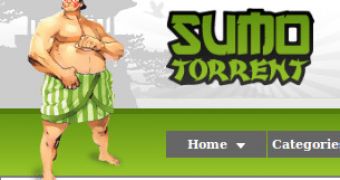It's not enough that companies looking for a scapegoat for their incompetence accuse third-parties, i.e. the sites not the users, of copyright infringement, or ridiculous things such as "facilitating" or "encouraging" copyright infringement, they're now going further away from the source and are going after the web hosts that harbor "illegal" sites.
BREIN, the Dutch anti-piracy lobbying group, is on a winning streak. It managed to get The Pirate Bay blocked in the country, among other things.
It can now add another success to its crusade, a Hague court found that a hosting company, XS Networks, is responsible for what people copied using links provided by a website said company hosted, SumoTorrent.
BREIN has been going after SumoTorrent for years, but to no avail. It asked XS Networks to take down the site and provide info on its owners, but the host obviously refused to reveal information on its clients without a court order.
Eventually, SumoTorrent agreed to let XS reveal some details, only after it had moved to another host, but those details turned out to be false anyway.
The court argues that SumoTorrent was "obviously" unlawful and that XS Networks "obviously" knew that. If it didn't, it should have known.
That is ridiculous on so many levels that it's hard to decide where to start. For one, content companies can't even figure out which content is legal and which isn't. There are countless examples of companies asking sites to take down content that their very employees had put there, from music blogs to YouTube.
So even SumoTorrent can't actually know if a file that it's linking to (not hosting) is legally shared or not.
To suggest that it was "obvious" to the web host, which by all rights should not even be allowed to peek at the private info stored by the sites it's hosing, is ignorant at best and reveals, once again, just how little judges understand the internet and how little they care to understand it when they're much better off defending the companies that sometimes pay their bills.
In the end, what this means, is that groups controlled by corporations, desperate and dying ones at that, have the power to take down any site and get the personal details of any website owner, with no oversight, and companies that refuse to accept this obvious abuse stand liable of paying huge fines and damages. Censorship never had it easier.

 14 DAY TRIAL //
14 DAY TRIAL //